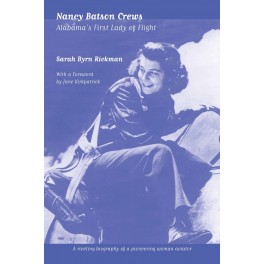 Maximize
Maximize
- Remove this product from my favorite's list.
- Add this product to my list of favorites.
Nancy Batson Crews: Alabama's First Lady of Flight
This is the story of an uncommon woman--high school cheerleader, campus queen, airplane pilot, wife, mother, politician, business-woman--who epitomizes the struggles and freedoms of women in 20th-century America, as they first began to believe they could live full lives and demanded to do so.











Follow us